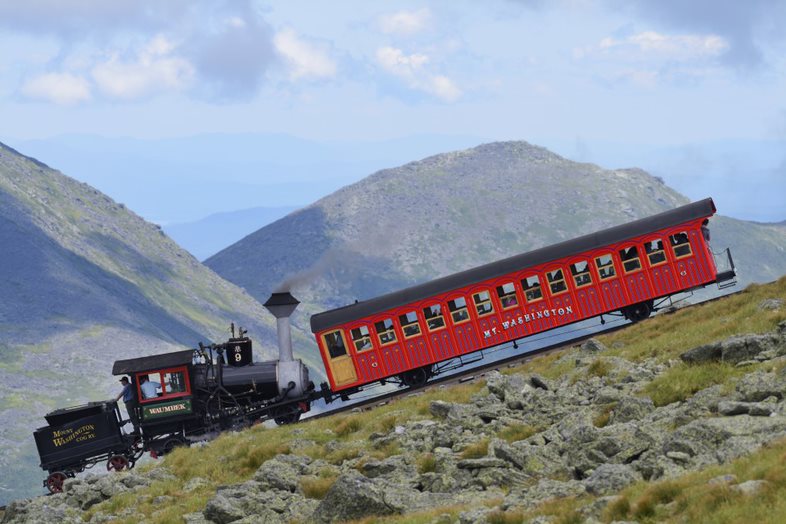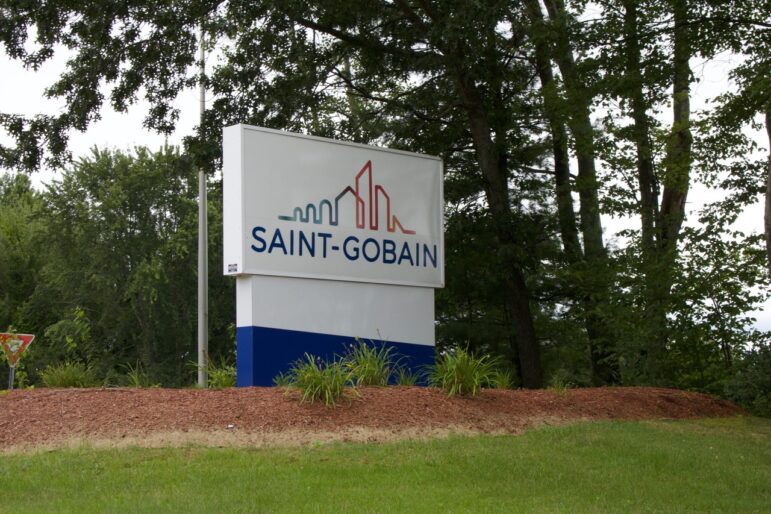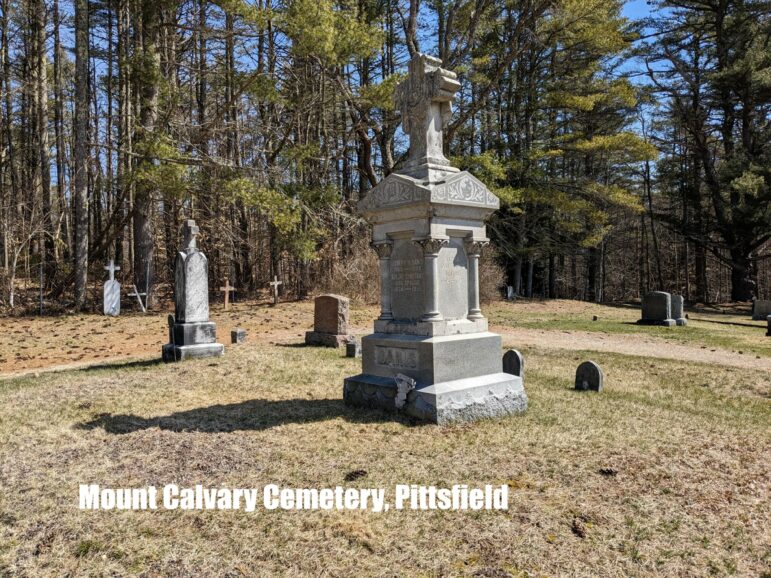By PAULA TRACY, InDepthNH.org
BERLIN – White Mountains Community College and The Cog Railway are teaming up for some workforce development in the North Country and to keep the iconic locomotives chugging up to the top of Mount Washington.
Perhaps, it might just keep some New Hampshire kids in state to live and work and raise a family.
The Cog just completed construction of a 34,000 square foot, $3.3 million maintenance facility at the base of the Northeast’s highest peak, designed to bring cutting-edge technology to the rail line, which has been in operation since 1869.
The facility was named in honor of Johnny Suitor, the railway’s longtime shop foreman.
It was built for The Cog’s team of master mechanics, welders, and fabricators to maintain and grow the fleet of nine biodiesel locomotives.
But it will also be a place for internships from the community college with locations in Berlin, Littleton, and North Conway. Its website can be found here https://www.wmcc.edu/.
White Mountains Community College offers a Diesel Heavy Equipment Technology program in Berlin and will be moving it to its new campus in Littleton.
Wayne Presby, owner of The Cog, said, “We will be offering internships. The college is building a smaller facility for the students on campus, but they wanted to see our plans. We have sent a number of our employees there for welding school, so this builds on that relationship.”
“We’ve got our own industrial plasma cutting table. We can cut steel, aluminum, and stainless steel up to six inches thick. We are also investing in a robotic welding system and a computerized maintenance and control system. We’ve gone high-tech in this building. These are things the community college wouldn’t have. It functions as an adjunct to their learning center,” Presby added.
White Mountains Community College President Charles Lloyd said he sees the collaboration with The Cog as an opportunity to expose students to another form of diesel equipment technology. “We’ve done a lot with on-road trucks and off-road heavy equipment. Trains are another animal. It’s a great learning experience for our students while understanding there is another whole career path here. It’s unique to New Hampshire. It’s one more way to keep our students in the North Country and have them gainfully employed,” Lloyd said.
The school’s diesel program typically attracts 30-35 students per year.
“Students are interested in the new facility and the technology and learning a different aspect you can’t learn anywhere else. It’s another learning lab in the North Country, and there is a lot of excitement. We are bringing students in from southern New Hampshire – Hudson, Nashua, Concord, and Rochester. We are recruiting to the North Country, not exporting kids out. They are getting to know the culture, and it’s keeping them in the area. The Cog is another opportunity – another place to go as they graduate,” Lloyd noted.
“With the new technologies and tools, the hope is to train and attract the future workforce needed to continue delivering generations of tourists to the summit of Mount Washington,” Presby explained.
He said he sees the project as a means of continuing to build on the significant growth The Cog has seen over the last decade when many of its engines have been converted from coal to biodiesel power.
“The former maintenance facility was built in 1890,” he said. “It was a very inefficient building to work in. Since 2009, we grew our ridership by 118 percent.”
The little train which scales up the side of Mount Washington is in and of itself an important cog in the region’s tourist draw, combining history, technology, and breathtaking views from its windows overlooking New England and parts of Canada on a clear day.
The new facility will have a robotic welding station, a pair of overhead bridge cranes, an air caster system for pushing locomotives around the shop floor by hand, and the typical assortment of tools, machinery, and software found in a modern maintenance facility.
There will be transferable skills taught, but Presby hopes to retain some of the trained local talent.
Each locomotive is custom designed and built in-house to meet the unique requirements of a mountain climbing railway operating in a harsh environment.
“There’s only one other company in the world that builds these locomotives – that’s Stadler in Germany. Stadler bought up a lot of companies that manufacture locomotives, so now they are the only one,” he said.
“But our line is different. We need to do extensive engineering because the grades are interesting, the cars are different, the tracks are different. (Stadler) would have to engineer it from scratch, so we decided we might as well do it ourselves,” said Presby.
A highly-trained workforce is needed to use this technology.
Presby is on the college’s diesel program advisory committee, helping out with grants and defining specs and materials for the college’s new training facility, Lloyd said he sees him as a visionary who is setting the standard for the program.
“It’s great seeing how he uses tech to track inventory and learn processes. He’s always looking at efficiencies and what’s best for his employees. He’s looking at sustainability, long term, for his workforce,” he added.
The Marshfield engine shop, built in 1896, had become more and more challenging to do the work necessary to keep The Cog’s growing fleet in tip-top shape.
The entire fleet now includes seven biodiesel locomotives, two steamers, and eight soon-to-be nine passenger coaches.
These vehicles and track maintenance equipment will be safely housed and serviced indoors, on-site at Marshfield Station, over the long winters.
Construction of the new facility began in 2020.
The oldest locomotive, MW2 (originally built at Manchester Locomotive Works in 1875), wintered snugly alongside M7, the newest biodiesel locomotive completed in 2019. The Cog also has some old but still very useful machine tools which will be maintained.
The goal is to formalize an internship program with The Cog for the summer of 2022.
Located at 3168 Base Station Road, The Cog is in the midst of its 152nd season, and more information can be found at https://www.thecog.com/
A story with historic photos of the old maintenance building is here https://www.thecog.com/marshfield-shop-update





